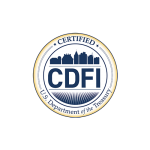
Having a good credit score is important because it can greatly improve the quality of your life. A good credit score can provide lower interest rates on credit cards, auto loans and mortgages.
Having good credit can provide you with more opportunities in life and save you a tremendous of money over time. If you want to boost your credit score here are some tips that can protect or improve your game.
Pay your bills on time
Paying your bills on time has the greatest impact on your credit score. In fact, paying your bills on time is one of the most important factors in determining your score.
From a lender’s perspective, an established history of timely payments is a good indicator you’ll handle future debts responsibly. It also has the largest scoring factor in both FICO and VantageScore credit scoring systems.
Making payments on time makes up a whopping 35% of your total score. Just one late or missed payment can stay on your report for up to seven years, so it’s very important to pay your bills on time, especially any retail credit. Fortunately, the impact of delinquent payments fades over time, and adding more positive credit accounts can help to speed that up.
Signing up for automatic payments can help you stay on time. Set up calendar alerts (or just writing on your calendar) to remind you of upcoming due dates.
Pay Down Balances
The second most crucial component in your credit score is how much revolving debt you’re carrying compared with your total available credit.
Make it a goal to reduce any high-interest credit card debt first, since that likely costs you more money in interest. For instance, an auto loan or federal student loan will mostly carry a lower rate than most retail credit cards.
Decreasing your credit card balances also shows potential lenders that you’re responsible with credit. Many experts believe your credit utilization should always be below 30% of your credit limit.
In addition to lowering existing debt balances, minimize ongoing debt by making it a goal to pay off your credit cards each month. Zeroing out your balance each statement period keeps your credit utilization low, which is one of the best ways to strengthen credit.
Only apply for credit you need
When you need to apply for new credit, research your likelihood of approval to ensure you’re a good candidate before applying. If possible, get a pre-approval or pre-qualification. In many instances these will result in a soft rather than hard credit pull. Soft pulls won’t affect your credit score.
When a hard inquiry is pulled on your report every time you apply for a new line of credit it will lower your score temporarily. A single hard credit pull, drops your credit slightly, however, a string of hard inquiries could signal to lenders that you are taking on too much debt. The effects of a hard credit pull on your score can last up to 12 months.
Don’t apply just to see if you get approved or because you received a pre-qualified offer of credit. Also refrain from applying for several credit cards within a short time frame, or before taking out a large loan like a mortgage.
Leave old accounts open
After you pay off any debt such as student debt or an auto loan, don’t rush to wipe out it off your credit report. If your payments were timely and complete, those debt records may actually help your credit score. The same is true for your credit card accounts.
Closing a credit card account can actually lower your credit score, as you will now have a lower maximum credit limit. If you’re still carrying balances on other cards or loans, your utilization ratio will go up and you’re better off keeping the card with a $0 balance. Having an account with a long history and solid track record of paying bills on time, are the types of responsible habits lenders and creditors look for.
Even if you no longer use an old credit card, it’s typically best to keep the account open. That’s because your credit scores benefit from a long credit history and a high total credit limit. Closing established accounts will shorten the average age of your accounts and lower your total credit limit.
If a credit card comes with a high annual fee you can’t afford, closing the account could be a good option—or ask your issuer to downgrade the card to a no-fee version if possible.
Set Up Automatic Bill Payments
Setting up autopay is the best way to avoid missing a student loan or other monthly loan or credit card payment. Be certain you have enough money in your checking account to cover each bill. You don’t want to incur any overdrafts.
By putting reoccurring bills on autopay, you won’t have to worry about sudden score dip after a forgotten bill. This provides you the freedom to focus on other ways to improve credit.
Resolve Debt in Collections
If you currently have an unpaid debt that’s gone to collections, you can consider negotiating it down or disputing the debt if it’s in error.
If a debt is more than three months past due, it typically goes into collections. The original creditor or a debt collector may try contacting you very frequently to get payment.
You have the right to request the debt collector stop contacting you, but it’s in your best interest to deal with the debt: You may pay off the debt in full or work out a negotiated settlement with the lender.
Don’t ignore the debt. This could ruin your credit and lead to potentially a lawsuit, resulting in garnished wages or a lien against your property.
Ask for higher credit limits
Credit utilization play an important role in your overall score. If your credit limit goes up and your balance stays the same, this will lower your credit utilizations and your credit score will improve.
If you have experienced an increase in your income or you’ve added more years of positive payment, you can contact your credit card issuer to ask about raising your limit.
Once the higher limit is reported to credit bureaus, it will lower your overall credit utilization and improve your overall score.
Avoid Credit Repair Scams
Be cautious about with working with “credit repair” companies who claim they can improve your credit for a fee. No company can remove negative information from your record if it is accurate. Instead work to improve your score by lowering your debt balances and paying your bills on time.
If needed seek out a certified credit counselor at a nonprofit agency for a free initial consultation to discuss your situation.
Conclusion
Improving your credit score takes time and patience. The best way to achieve an excellent score is to develop good long-term credit habits.
An excellent credit score is most often the result of years of conscientious financial behavior. While some strategies will let you see small improvements quickly, achieving a high credit score takes discipline and personal responsibility.
The best course of action to increase your credit score is to always pay your bills on time and pay down your debt.






